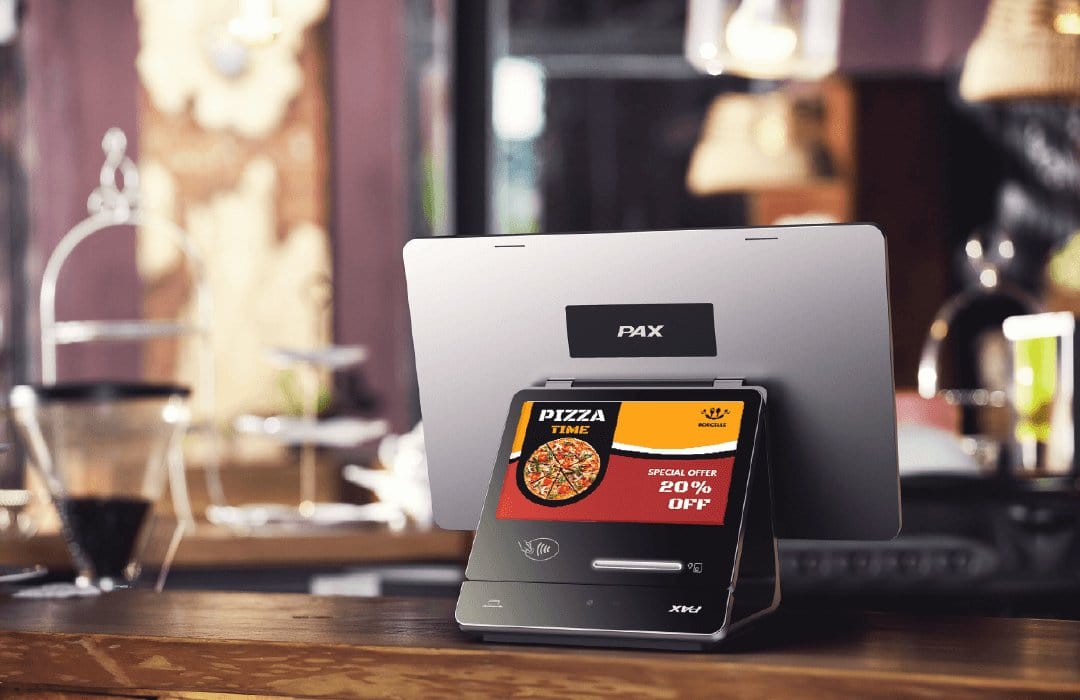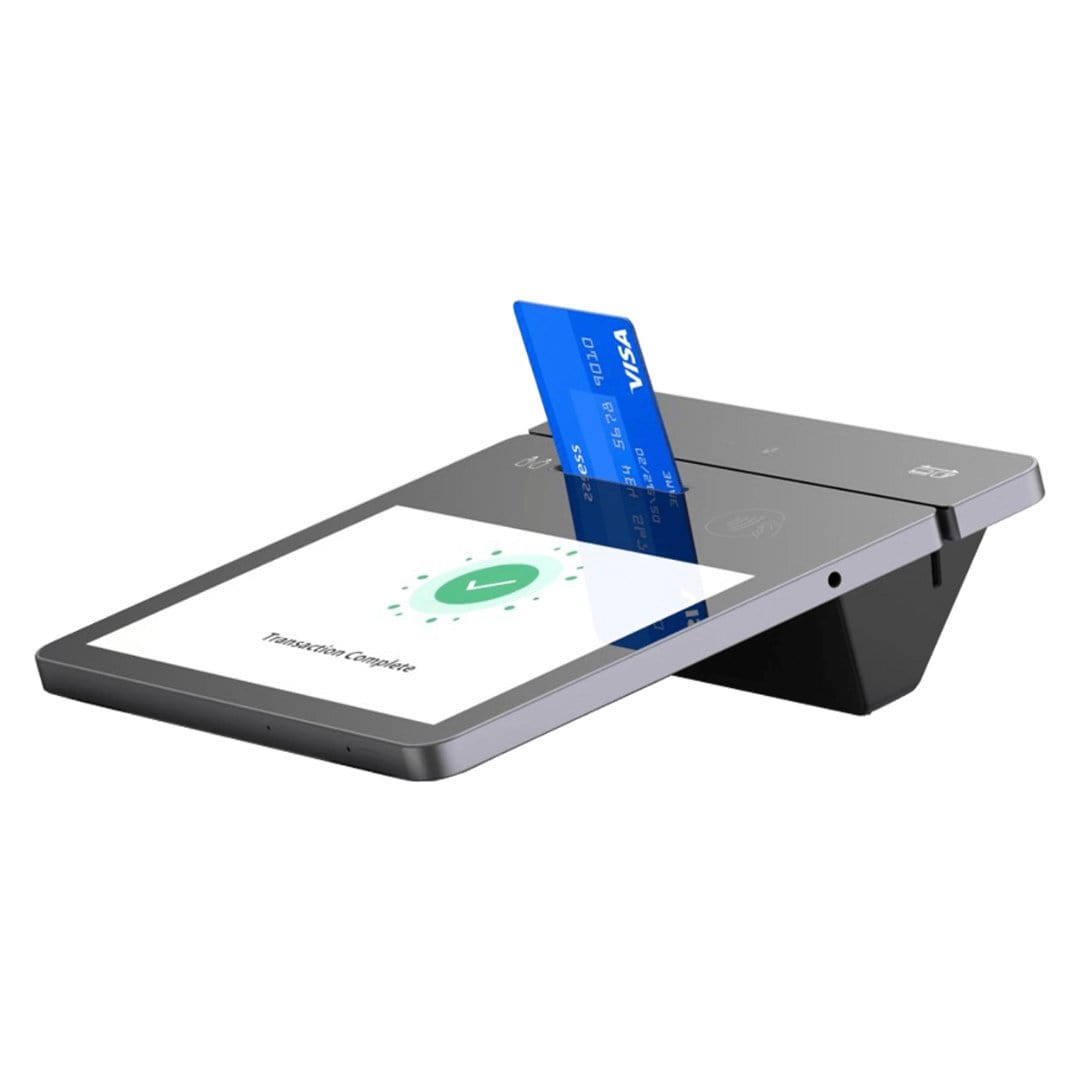¿Busca una excelente manera de gestionar transacciones y optimizar la gestión para el éxito de su negocio? All-Star Terminals presenta sistemas de punto de venta (TPV) que transforman la forma en que se procesan las transacciones y se gestiona el inventario. Al combinar hardware y software, nuestros sistemas TPV gestionan las ventas, el inventario y obtienen información crucial desde una plataforma unificada, optimizando la productividad operativa y la experiencia del cliente.
Nuestros sistemas TPV a la venta son potentes herramientas de gestión empresarial. Integran diversos métodos de pago y generan informes en tiempo real, lo que potencia su negocio gracias a su versatilidad.
Explore sus beneficios en detalle y compre un sistema POS hoy para mantener su negocio competitivo y eficiente.
Beneficios de los sistemas POS
1. Procesamiento de transacciones más rápido y eficiente
Los sistemas TPV pueden procesar las transacciones de los clientes con precisión y rapidez escaneando los códigos de barras de los artículos en segundos. También admiten diversos métodos de pago mediante un terminal TPV y calculan automáticamente impuestos y descuentos.
2. Gestión precisa del inventario
Mediante la monitorización en tiempo real y la emisión de alertas de bajo stock, los sistemas POS ofrecen un seguimiento del inventario en tiempo real para garantizar una precisión total. Esto ayuda a minimizar los costes de almacenamiento, mejorar la eficiencia operativa y reducir el riesgo de desabastecimiento para garantizar que los clientes puedan comprar lo que desean.
3. Informes financieros simplificados
Estos sistemas ayudan a las empresas a tomar decisiones informadas mediante la generación automática de informes financieros detallados. Esto facilita el seguimiento de gastos, el análisis de datos de ventas, la preparación de impuestos y el análisis de rentabilidad, permitiendo a los empresarios pronosticar ingresos y analizar el rendimiento empresarial.
4. Mejora la gestión de los empleados
Un sistema POS para ventas permite a las empresas gestionar los horarios de los empleados, supervisar la nómina y el rendimiento. Esto significa que, con este sistema, se puede controlar el tiempo de trabajo de los empleados, calcular salarios precisos, supervisar los turnos y evaluar su productividad en función de las ventas y la gestión de tareas.
5. Integración con otros sistemas empresariales
Conocidos por su versatilidad, estos sistemas se integran fácilmente con otras herramientas empresariales, como software de contabilidad, gestión de relaciones con los clientes (CRM), plataformas de marketing y plataformas de comercio electrónico. Esto reduce la introducción manual de datos y crea una solución unificada de gestión empresarial.
¿Cómo funciona el software POS?
Aquí se explica paso a paso cómo funciona el software POS:
1. Procesamiento de transacciones
Una vez que el cliente selecciona los artículos, estos se escanean con un lector de código de barras o se introducen manualmente en el sistema TPV. El software TPV, integrado con un terminal de pago, calcula automáticamente el importe final, incluyendo los descuentos e impuestos aplicables. Tras esto, el cliente selecciona el método de pago (efectivo, tarjeta o pago digital). El software procesa la transacción de forma segura conectándose a la pasarela de pago para su autorización.
2. Autorización de pago
Tras procesar la transacción, el software del TPV envía los datos del pago al banco a través de canales cifrados. El banco aprueba o rechaza la transacción. Tras la autorización, se confirma la transacción y se genera un recibo impreso o digital para el cliente.
3. Gestión de inventario
Cada transacción actualiza la base de datos de inventario en tiempo real. El software monitorea los niveles de existencias, avisa a los empleados cuando hay escasez de artículos y contacta a los proveedores para la reposición automatizada.
4. Gestión de empleados
El sistema POS para ventas integra el procesamiento de nóminas y controla el acceso a información sensible mediante permisos de usuario.
5. Informes y análisis
El software genera informes de ventas analizando los datos por día, producto y hora. También permite realizar un seguimiento de indicadores de rendimiento como el valor transaccional promedio, las ventas por empleado y los productos más vendidos. Además, se integra con software de contabilidad y simplifica la gestión financiera al incorporar los datos de ventas directamente a los sistemas contables. Esto ayuda a las empresas a analizar tendencias, gestionar las finanzas y examinar la eficiencia operativa.
6. Características de seguridad
Al incorporar cifrado, tokenización y cumplimiento con PCI DSS, el software POS protege el pago y la información del cliente.
7. Integración en la nube
La mayoría de los sistemas TPV en venta utilizan tecnología en la nube para el almacenamiento en línea, lo que ofrece acceso en tiempo real a copias de seguridad, datos transaccionales y opciones de gestión remota. Se puede acceder a ellos desde diferentes ubicaciones y dispositivos.
Read less

 Proveedor:STAR MICRONICS
Proveedor:STAR MICRONICS All-Star Terminals
All-Star Terminals
























